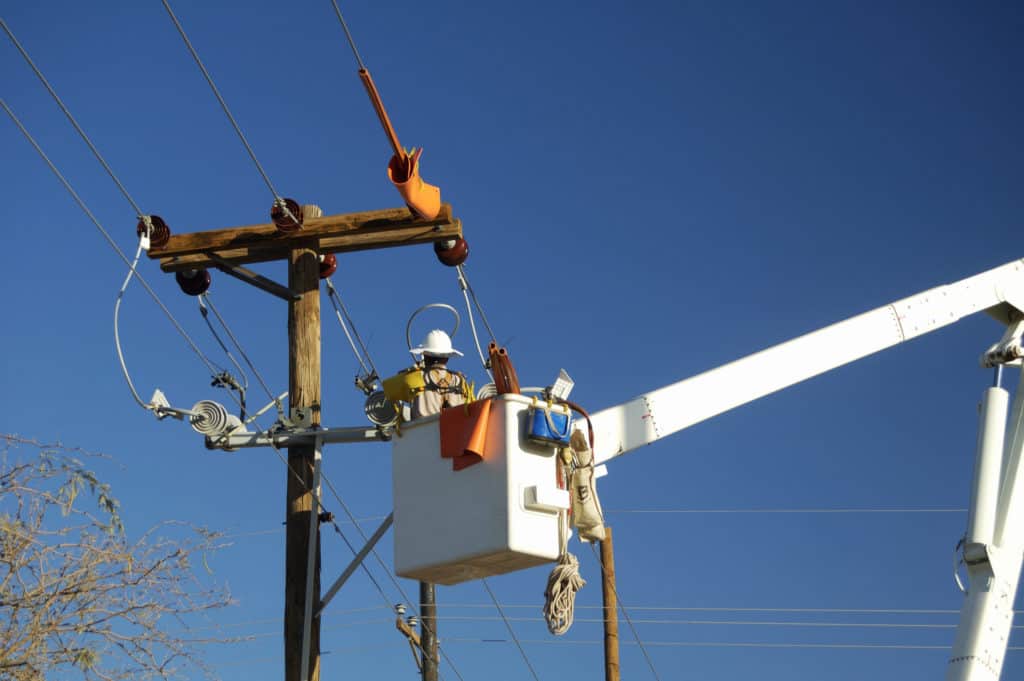I started my electrical career later in life. After an ‘eventful’ career as a chef, I decided at the age of 26 to make the change, find an apprenticeship, and become an electrician. Whilst 26 is a few years away from 30 I understand the challenges facing older folks as they look to change careers.
As a fresh-faced (sort of) newbie on my induction week with the power distribution company I had managed to secure a job with, my roommate was a fellow new starter who was becoming a lineman at the age of 30.
This blog post summarises my conversations with him about how he became a lineman later in life, alongside research with other colleagues, forums and a little personal experience thrown in the mix.

Is It Possible to Become a Lineman at 30?
It is absolutely possible to become an electrical lineman at 30 and above. Society’s image of securing a job for life when we leave school has dramatically changed. Employers now recognise the value of hiring older trainees and the distribution industry is no exception.
It’s a cliche to say that age is just a number, but having the right attitude is the key when it comes to changing careers later in life. I found it tricky at times going from a Sous chef (second chef) in a restaurant with an element of respect (at least to my face) to becoming an electrical apprentice at the bottom of the pole.
I found that new colleagues were naturally a little wary at first as they didn’t know how I would react to doing the more demeaning tasks that all apprentices have to go through. At the age of 26, I was being asked by people younger than me to make cups of tea and sweep up the site.
Readers’ personalities will tell themselves how they would react in these situations. I personally didn’t mind. To me, it was part of the stepping stones needed in order to retrain and all part of the learning process. Whilst age is just a number if that number represents arrogance or a feeling of superiority from the start then things will get tricky.

A fellow apprentice I worked with who was in his 30s fought against the system. He refused to make the teas or get the lunch order if asked. In response, the older more experienced guys wouldn’t take the time to show him stuff. It always seemed to me to not be a great approach to take.
When it comes to the unique challenges of being an electrical lineman, being physically fit is a vital part of the role. Assuming we have the mental fortitude to humble ourselves and be willing to listen and learn, the other vital part of the puzzle is making sure we are physically able to do the job.
Have Others Become Lineman Later In Life?
Anecdotal evidence from me that people have become linemen later in life is all well and good but I felt I should find some examples to evidence. Below is a screenshot taken from a Reddit thread where the writer states they worked alongside someone starting at 52 whilst another commentator mentions their husband completing their lineman training at 45.

Whilst these examples may not be the kind of evidence that holds up in a court of law, I hope it does encourage those looking to change careers that it is possible and there are plenty of people out there doing it.
Is It Possible to Become a Lineman at 40 or 50?
It is possible to become a lineman at 40 or 50. Lineman training, like the job itself, requires a high level of fitness and a willingness to learn and adapt. Assuming the candidate posses these traits being an older entrant to the trade can be an advantage.
Best Way To Become A Lineman at 30
When I was becoming an electrician later in life I discovered that applying to smaller companies to work as an apprentice was going to bear very little fruit. After dozens of unanswered or rejected applications, I realised a change of plan was needed.
After some research, I discovered that there are costs to employing apprentices that the employer must bear. The cost to an employer for taking on an older apprentice is actually greater than a younger one. A person of school leaving age gets government funding to pay for their classroom education alongside the fact the minimum wage for this age bracket is less.
In contrast, an older apprentice isn’t entitled to government-funded training and must by law be paid a higher wage. This results in higher costs to the employer and many simply choose the younger cheaper option (no judgement from me – it’s understandable)
Instead, I focused my efforts on applying to larger companies. This is when things changed. Larger companies such as water departments and large energy supply companies have the budgets to absorb the additional costs associated with taking on older apprentices.
Middle managers are happy to pass the extra cost on to the wider company as a whole whilst benefitting from the higher maturity levels and strong work ethic that (usually) comes from an adult experienced in the world of work.
My advice for anyone older looking to get a trade and change careers is to apply to the large companies. Alongside having a much greater chance of being selected the training schemes on offer tend to be better put together, resulting in a stronger all-round training than a smaller one-man-band style firm could ever offer.
Final Thoughts
We seem to have this feeling in our minds that all apprentices are school leaving age when they begin learning a trade such as a lineman or an electrician. I guess this is a throwback to the bygone days when in order to do an apprenticeship you would need to begin as soon as you left school and no company would take on an adult trainee.
Thankfully, for the sake of social mobility, times have changed. Becoming a lineman at 30 is absolutely possible, even becoming a lineman at 40 is possible. Society now accepts that people will have multiple careers in their lifetime. Far from being frowned upon, the different skills that come from having various career paths are being recognised by employers as a good thing.
I for one am very grateful that the ability to change careers later in life is now the case, because were it not, I would still be sweating behind the stove of a hot and sweaty kitchen.

